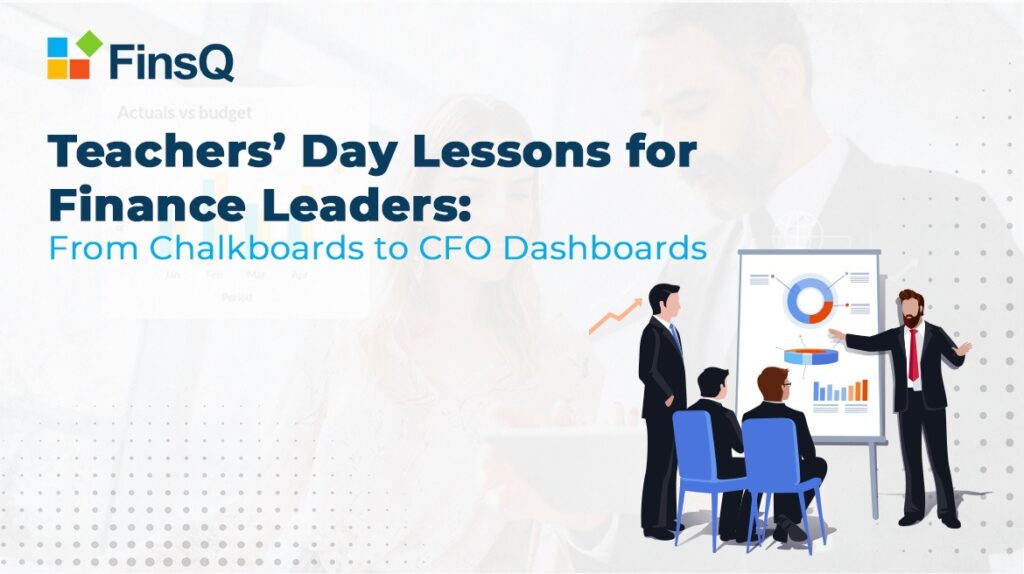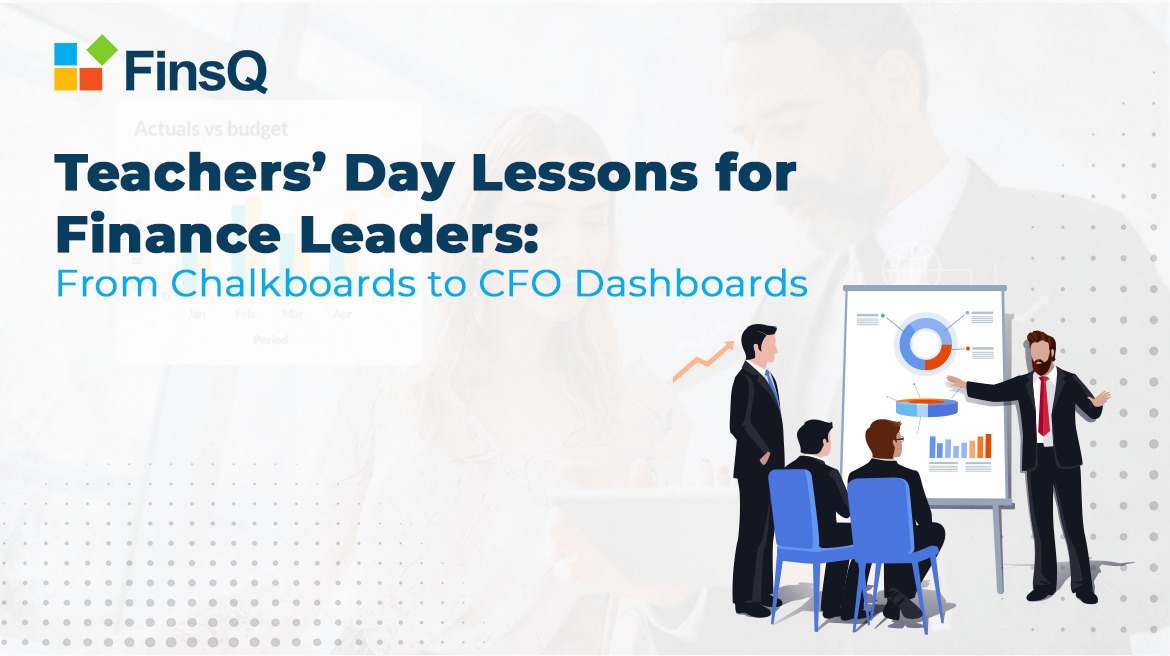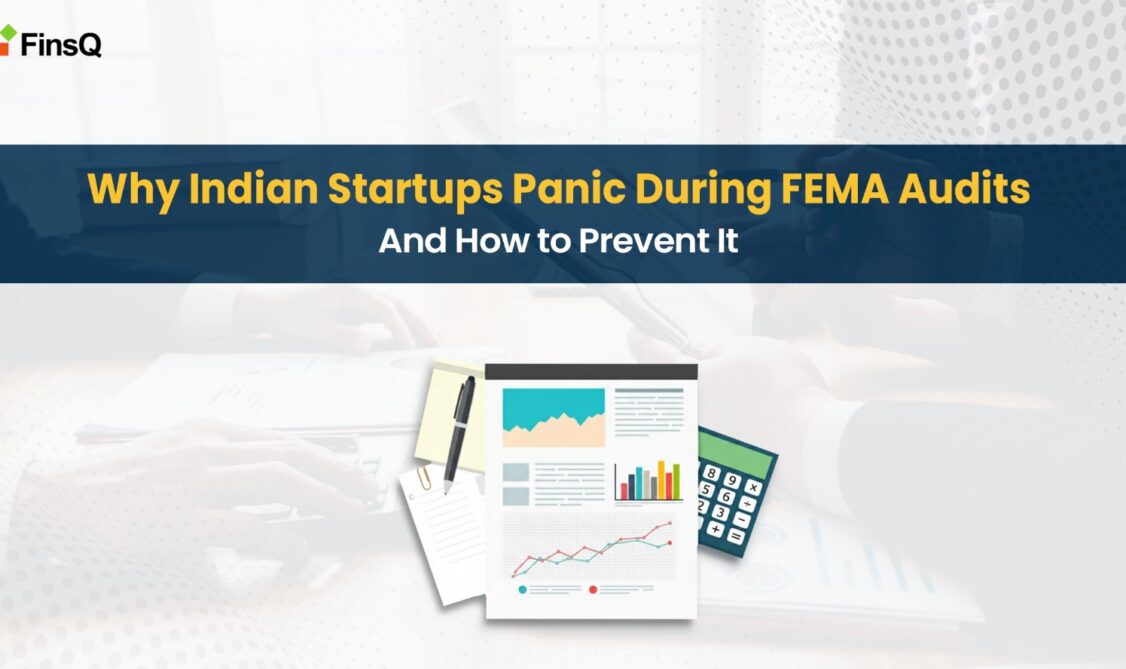
Teachers’ Day Lessons for Finance Leaders: From Chalkboards to CFO Dashboards
On September 5th each year, we take a moment to recognize how teachers shape our lives. Teachers come in many forms beyond the classroom—they can be mentors, guides, and even finance partners.
CFOs and business leaders don’t teach with lectures or blackboards. They provide clarity, discipline, and guidance for decision-making. The Virtual CFO now mirrors this role.
Let’s examine how the teachings of past educators echo in the way finance leaders guide companies today—using real scenarios you might find familiar.
Before: The Teacher’s Role in Our Growth
In school, teachers did more than just deliver content. They built discipline, interpreted complex ideas, and helped students navigate uncertainty. They:
Simplified the complex → turning confusing formulas into step-by-step methods.
Instilled discipline → reminding us that consistent effort matters more than last-minute cramming.
Guided through uncertainty → encouraging us before exams when confidence ran low.
Emphasized continuous learning → showing us that knowledge goes beyond textbooks.
Picture the math teacher who took the fear out of algebra—or the history teacher who turned dry facts into engaging tales. They boosted our self-assurance to tackle problems we used to shy away from.
Now: The Virtual CFO’s Role in Business Growth
Let’s jump to the present day. For those at the helm of businesses, digits have replaced equations regulatory cutoffs have taken the place of tests, and gatherings with the board now serve as classrooms. Here’s a look at how a Virtual CFO steps into the teacher’s shoes for companies:
1) Simplifying Complexity
Before: Teachers decoded dense textbooks into manageable ideas. A complicated theorem was broken into steps we could practice and master.
Now: Virtual CFOs do the same for financial statements. Instead of drowning business leaders in 50-page reports, they distill key insights—cash flow risks, profit margins, and growth levers—into a format decision-makers actually use.
Example: A retail chain once told us, “Our finance team gives us data, not decisions.” With a Virtual CFO, their MIS was redesigned into a 3-minute summary dashboard. Suddenly, the CEO could focus on why margins were shrinking, not where to look for the numbers.
2) Building Discipline
Before: Teachers enforced timetables, homework, and consistency. You couldn’t prepare for exams by cramming on the last day.
Now: Virtual CFOs enforce financial discipline—monthly reporting deadlines, compliance calendars, and cash flow reviews. Businesses learn that financial health isn’t built at year-end, but through steady habits throughout the year.
Example: A mid-sized startup treated GST deadlines like last-minute projects. Chaos, penalties, stress—it was an endless cycle. After FinsQ stepped in as Virtual CFO, processes were streamlined. Filings became predictable, penalty-free, and stress-free. The founder later joked, “It feels like we’ve finally stopped bunking finance classes.”
3) Guiding Through Uncertainty
Before: Teachers prepared us for surprise tests, pushing us to think on our feet. Their encouragement before exams gave us confidence to face the unknown.
Now: Virtual CFOs prepare businesses for uncertainty—market volatility, tax policy changes, investor demands, and funding crunches. Instead of reacting under pressure, leaders can plan multiple “what if” scenarios with confidence.
Example: During COVID disruptions, one of our clients faced sudden cash flow stress. With scenario modeling from their Virtual CFO, they were able to plan payroll, negotiate vendor terms, and secure credit lines—all before the crisis peaked. The CEO later said, “It felt like having a teacher who handed us the answer key just before the surprise test.”
4) Emphasizing Continuous Learning
Before: Teachers reminded us that learning doesn’t stop at the exam. They encouraged us to stay curious, to explore beyond the syllabus.
Now: Virtual CFOs push businesses to continuously learn from numbers—monthly trends, customer behaviors, tax policies, and even global shifts. They make sure leaders adapt strategies, rather than stay stuck in outdated models.
Example: A family business we worked with used to repeat the same sales forecast year after year. By applying AI-driven financial forecasting with our Virtual CFO support, they saw new growth opportunities in underperforming regions. Their CFO told us, “For the first time, we’re not just repeating old lessons—we’re writing new ones.”
Why This Matters for CFOs & Business Leaders
Finance is not just about balance sheets; it’s about clarity, foresight, and discipline. Much like teachers shaped students into confident individuals, Virtual CFOs shape businesses into confident, future-ready organizations.
At FinsQ, we see ourselves as more than finance professionals. We are guides, mentors, and partners—helping business leaders not only comply and report, but also learn, adapt, and grow.
Key Takeaway
Teachers gave us the foundation to succeed in life. Virtual CFOs give businesses the foundation to succeed in finance.
This Teachers’ Day, let’s honor the timeless role of mentors—inside classrooms and inside boardrooms.
Because every business deserves a teacher in finance.







